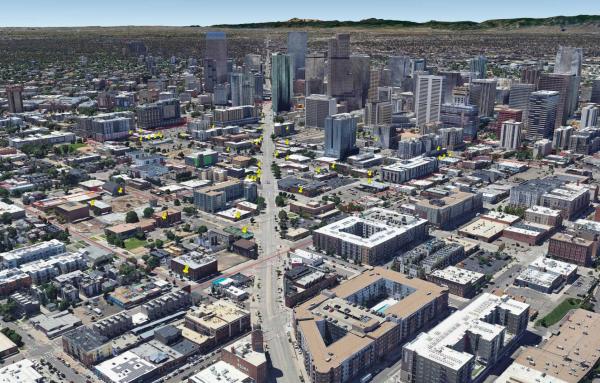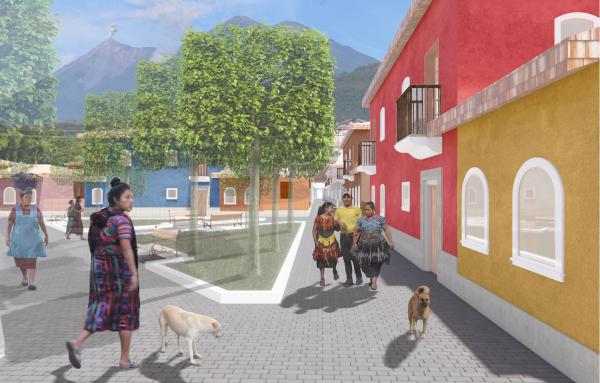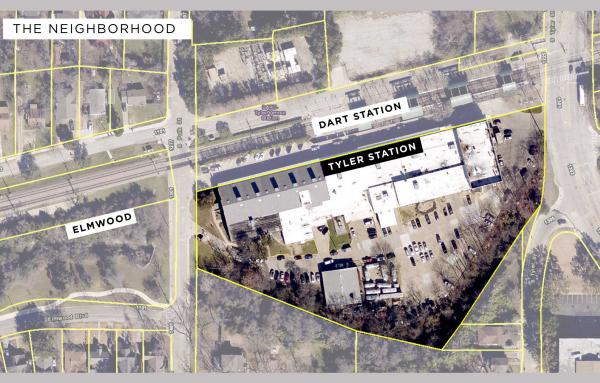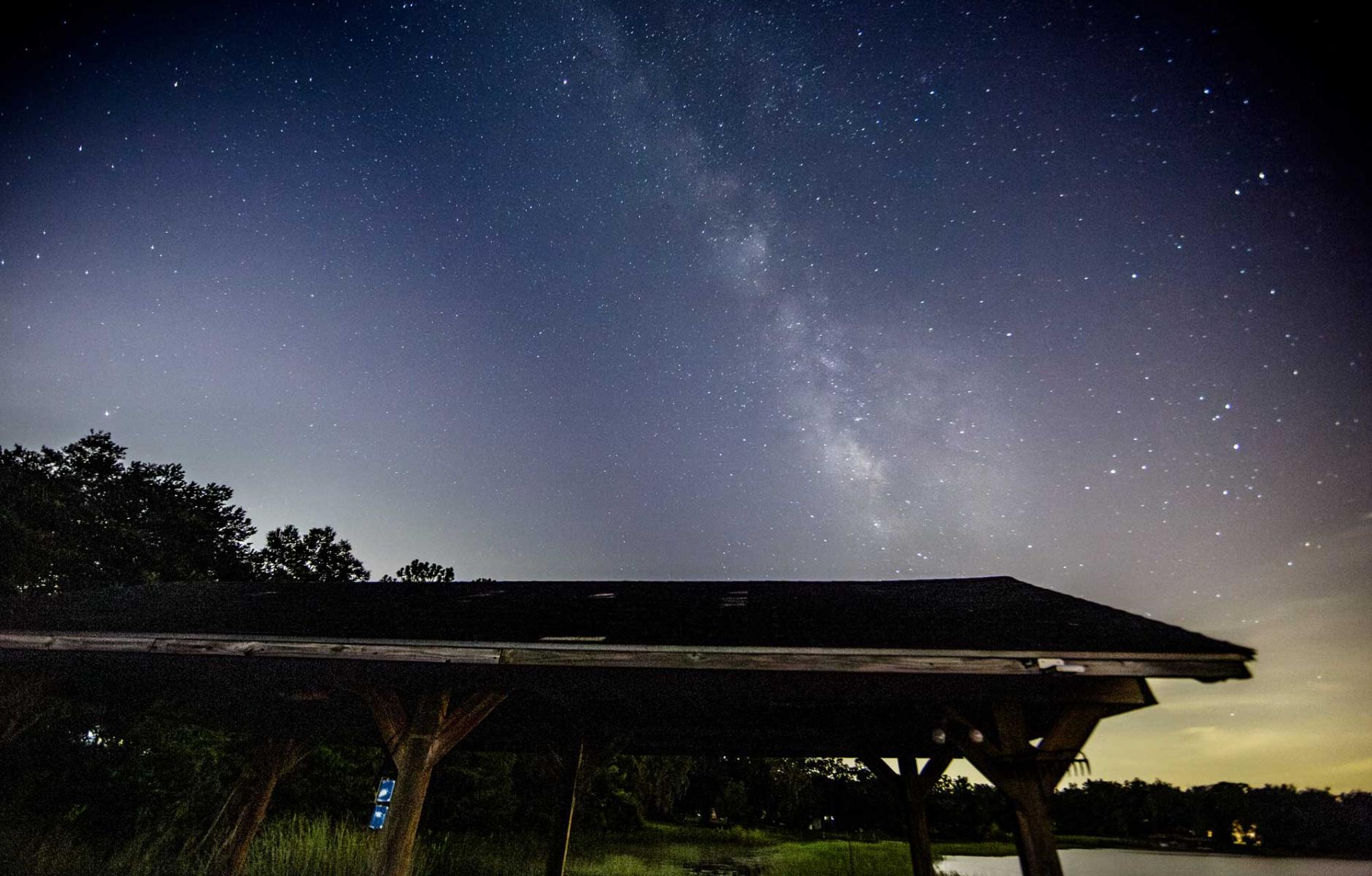
A model dark sky community
In June 2023, Groveland, Florida, became the first certified International Dark Sky Community in Florida and the Southeast US, using context-based lighting standards. The Groveland Dark Sky Initiative applies new urbanist thinking to light pollution—downtown, in historic neighborhoods, suburban areas, and rural lands.
“The goal of the city’s Dark Sky Initiative is to become a complete dark sky community to reduce the impacts of light pollution on residents, protect wildlife and their habitats, enhance public safety, and preserve the natural charm of the night sky. The program also seeks to inspire other local governments to join the effort by adopting similar policies for dark sky lighting,” the City explains.
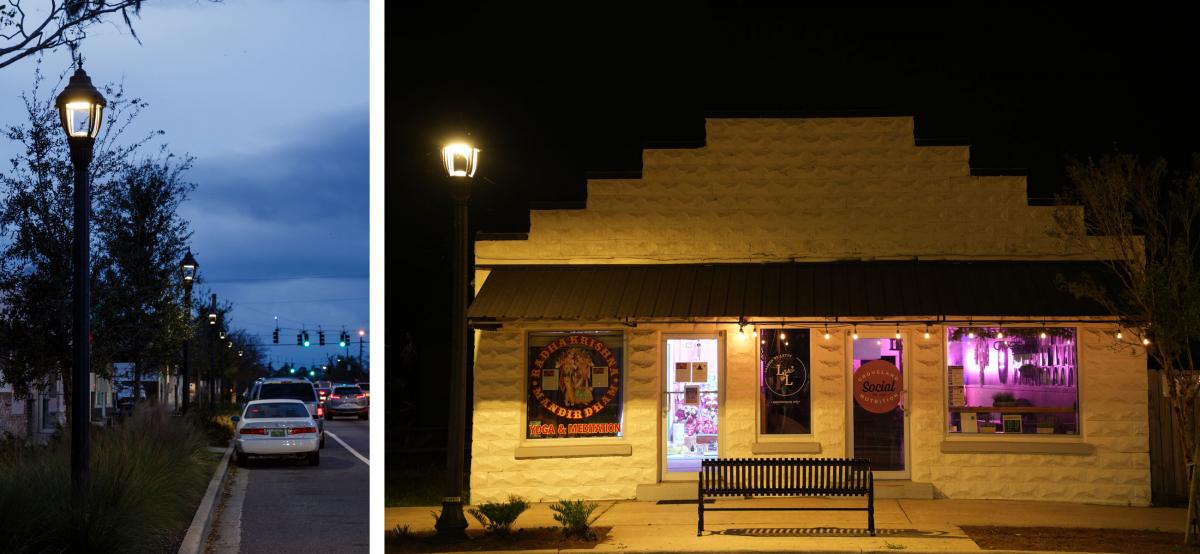
This year’s CNU Charter Awards jury gave Groveland honorable mention for its innovative approach to light pollution, which can disrupt sleep cycles, animal migration patterns, and obstruct the visible night sky. Historically a small rural community, Groveland is growing fast. Its population increased from 2,978 in 2000 to over 24,000 today.
The city’s proximity to natural areas including the Green Swamp and the Withlacoochee State Forest prompted Groveland, the last frontier in Greater Orlando, to be a model community to initiate dark sky policy, the City says.
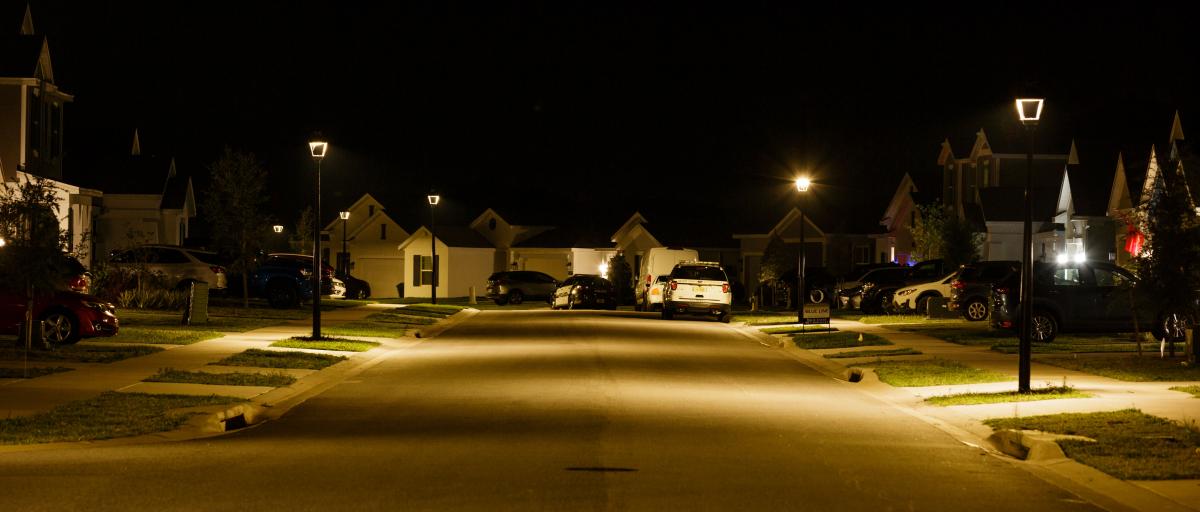
The regulations use different lighting classifications for different purposes, such as high-activity areas, public safety, architectural and landscape elements, and multipurpose applications. Shielding of the lighting is important to direct light to the area intended—rather than obscuring nature and the night sky. Also, warmer light color temperatures can help improve night vision and create a safer environment.
The city has already made significant progress in implementation and outreach. “City staff worked with its largest utility provider to install dark sky streetlights in three new residential neighborhoods, with several more slated to follow. In the historic downtown, the city purchased decorative pedestrian-scale lighting and streetlights that meet vernacular and dark sky code standards and feature smart technology. In FY 2023, lighting improvement costs totaled over $120,000, primarily funded by the CRA; an additional $200,000 was budgeted for lighting in FY 2024.”
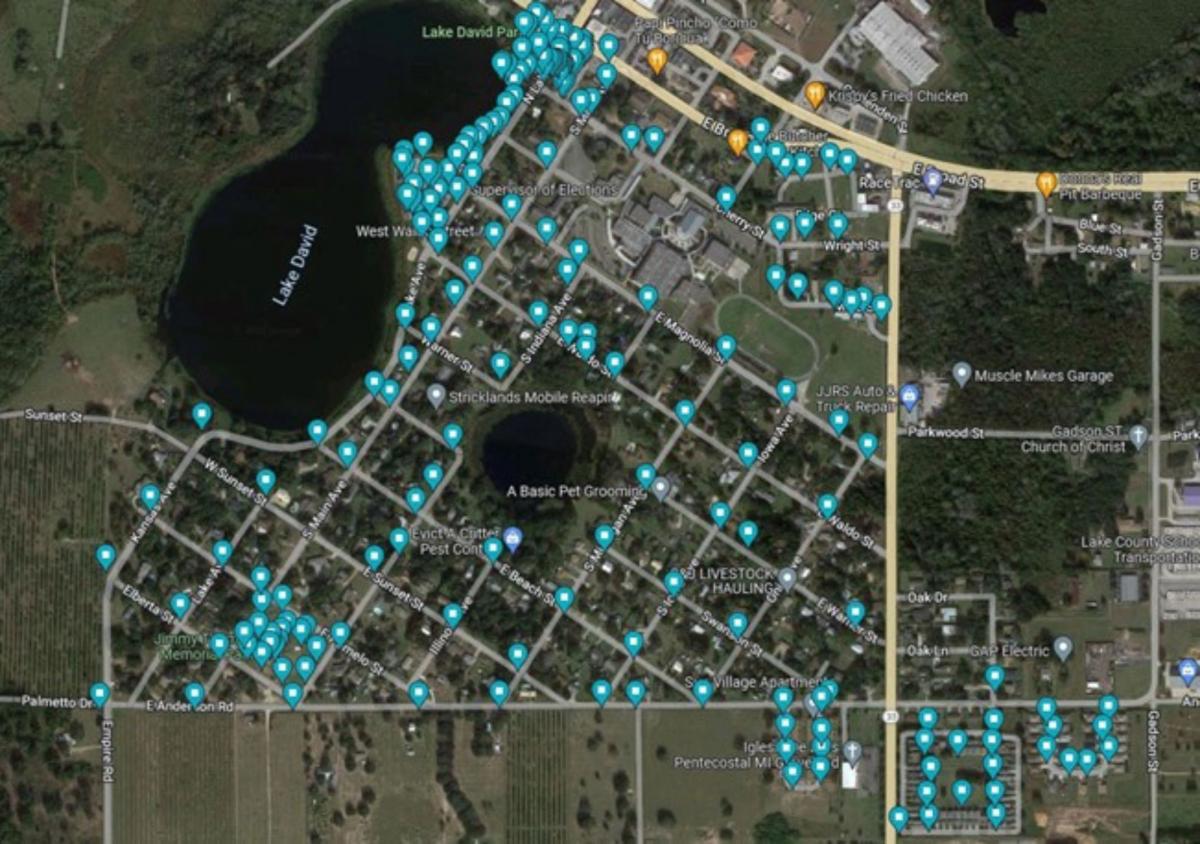
The city completed an inventory of all city-owned lighting to be retrofitted. Community outreach programs include virtual workshops, tables at farmers markets, and sky quality meter training sessions. The city hosts a popular annual Star Party to spread public awareness. The initiative was approved unanimously, and enjoys broad support across the political spectrum.
“There’s something that each one of us can do to make Groveland a better place,” says Mary Proctor, resident and Dark Sky Advocate. “It’s been fantastic having such a diverse group of people and organizations come together. At the Star Party, we had 700 people attend, it was amazing. The utility companies got involved and joined us. Even the developers have come on board and accepted that this is a good idea for their communities.”
With 24,000 residents, Groveland is one of the largest certified International Dark Sky Communities, according to Amber Harrison, Dark Sky Places Program Manager.
Without a concerted effort by jurisdictions throughout Central Florida, visibility of the night sky will wane over the coming decades, depriving residents and future generations of access to a treasured natural resource. Groveland’s Dark Sky Initiative and policy standards represent replicable models for other communities to embrace.
The 2025 Charter Awards will be presented at CNU33 in Providence, Rhode Island, on June 12.
Groveland Dark Sky Initiative, Groveland, FL:
- City of Groveland, Principal firm
- Steven Miller, DarkSky Central Florida Chapter Director
- Gerald Rooks, Duke Energy Outdoor Lighting Senior Products and Services Manager
- Brittany Kinlaw, SESCO Lighting Public Sector and Outside Sales Representative
- Tracie Wolf, Spring City Electrical Marketing Manager & Regional Sales Project Manager
2025 CNU Charter Awards Jury
- Rico Quirindongo (chair), Director, City of Seattle Office of Planning and Community Development
- Majora Carter, CEO of Majora Carter Group in the Bronx, New York City
- Jake Day, Maryland Secretary of Housing and Community Development
- Anne Fairfax, Principal, Fairfax & Sammons in New York, NY, and Palm Beach, FL
- Eric Kronberg, Principal, Kronberg Urbanists + Architects in Atlanta, GA
- Steven Lewis, Principal, ZGF Architects in Greater Los Angeles, CA
- Donna Moodie, Chief Impact Officer, Urban League of Metropolitan Seattle
- Joe Nickol, Principal, Yard & Company in Cincinnati, OH





